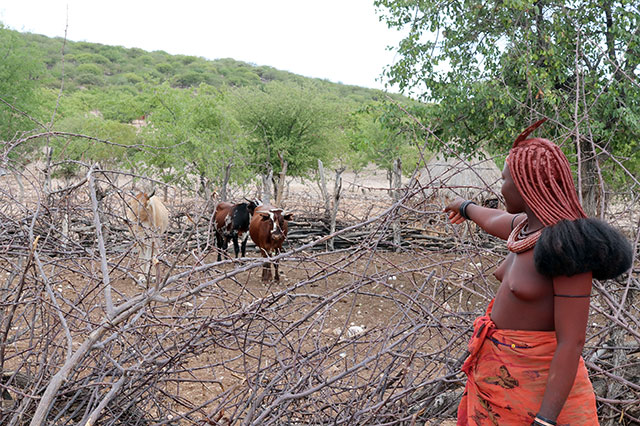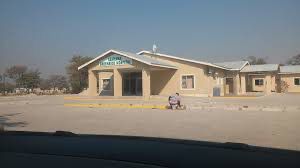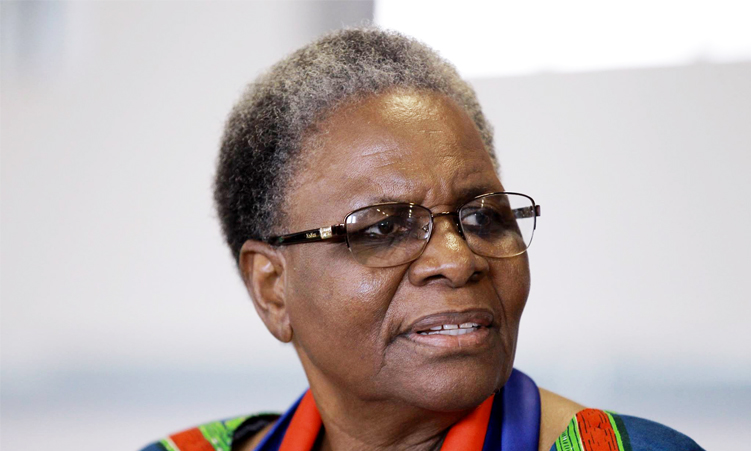THE air you breathe between the scattered and unique Ovahimba huts at the Omaoipanga village situated about 15 kilometres from Opuwo is fresh, and one cannot help but admire the high hills on the horizon, the freedom of the children, and after a few drops of rain, the odour of fresh cow dung that sums up the rural village ambience.
The Namibian met 16-year-old Zerihongua Muhenje, wife of a 56-year-old man. She was married off when she was only eight – in the name of tradition.
When The Namibian first saw Zerihongua and her 14-year-old cousin, they just looked like average village girls who had been denied the opportunity to go to school, until they spine-chillingly mentioned that they were both married.
The questions that immediately sprang to mind were: ‘When did he first have sex with you? Did you agree to it? Do you want to be in this relationship?’
Zerihongua was in her conspicuous traditional attire and barefoot, having returned from fetching water a few kilometres from their home.
My questions arose because (for a moment) I drifted into this space (of reality), and thought this could have been my daughter, my niece or just this 16-year-old in a village outside Opuwo.
I asked her again: “You got married when you were eight, right, and when did you first have sex with him?” I needed to be sure.
She was fidgeting with her finger nails, looking at her 14-year-old ‘partner’ and cousin as if to seek approval, and then she nervously threw an eye towards her uncle who was sitting under a tree in front of their traditional hut, and curtly said:
“Ayeh (no), I do not want to talk about it.”
However, her uncle, Ukondjerua Kavari, instructed her to talk to us.
“Talk to the people, this is our culture. Anyway, she was ‘given’ away when she was eight years old, and her husband came to take her home for the first time,” Kavari said.
Zerihongua then opened up, while her cousin and another girl were peeping from inside the hut and giggling.
“Yes, we had sex, I cannot remember when, but I think it was when I visited him at his house at Otavi, where he lives with his wife. She is okay with me, but I do not like him because he is abusive. He makes us work all day, and I do not like going there,” she said.
I started thinking how many Zerihonguas were out there, and what society was doing to save them from this fate. She furtively looked at her uncle time and again during our conversation, and he interjected in Otjihimba: “Ete tukongorera ombazu yetu, tweivaza nao, (we follow our culture; we found it like that). Who are we to change it? She was given away by my mother, who died.
“She is like the other one inside the hut who was given to her husband while she is was still breastfeeding, she too has a husband. He must just come and claim her, but they must bring livestock if they are taking them to their homesteads. Do you see that cow with a white spot in the kraal? It is the one Zerihongua’s husband paid for her hand,” said Kavari.
According to the United Nations Population Fund (Unfpa), child marriage is a human rights violation.
However, despite laws against it, the practice remains widespread in many countries, mainly in Africa and Asia, in part because of rampant poverty and gender inequality.
“In developing countries, one in every four girls is married before they reach the age of 18. One in nine is married under the age of 15.”
Child marriage is a threat to the girls’ lives and health, and it limits their future prospects. Girls pressed into child marriages often become pregnant while still adolescents, increasing the risk of complications in pregnancy or childbirth. This is because their bodies are not developed enough to bear the burden.
Asked if she was using protection or contraceptives, Zerihongua said her ‘husband’ uses condoms at times, but she is not on any contraceptives.
Health extension worker in that area, 28-year-old Uaondjerako Tjiumbwa said they try to give young people in the area sex education. While some take it seriously, others seem not to care.
“Teenage pregnancy is a big problem in our area, and most girls become sexually active from a young age. While some use protection, most do not, and they contract different sexually transmitted diseases. I think we must put more emphasis on sexual education and these girls’ rights,” Tjiumbwa noted.
While most 14- and 16-year-olds are trying to impress boys of their age, Zerihongua dreads the next time she must sleep with her “geriatric husband’.
All that she wants is to go to school so that she can read and write, she added.
Stay informed with The Namibian – your source for credible journalism. Get in-depth reporting and opinions for
only N$85 a month. Invest in journalism, invest in democracy –
Subscribe Now!






